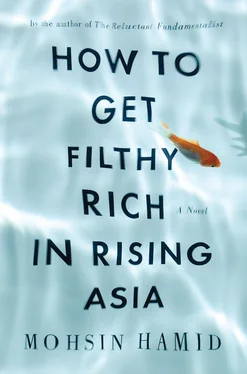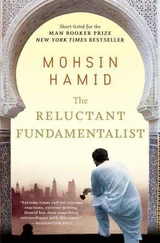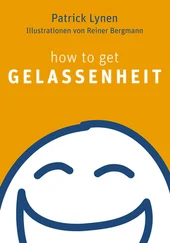The drone circles a few times, its high-powered eye unblinking, and flies observantly on.

WE MUST HURRY. WE ARE NEARING OUR END, YOU and I, and this self-help book too, well, the self in it anyway, and likewise the help it offers, though its bookness, being bookness, may by definition yet persevere.
As my writer’s fingers key and your reader’s eyes flick, you stand at the cusp of the eighth decade of your life, substantially bald, mostly thin, resolutely erect. Your parents have died, your surviving sister and brother survive no longer, your wife has left you and married a man closer to herself in outlook and in age, and your son has chosen not to return after studying in North America, which, despite Asia’s rise, retains some attraction for a young conceptual artist with craggy hip bones and lips like buttered honey.
Through the window of your office you see your city mutating around you, its zoning and planning restrictions slipping away, deep foundation pits and skeletal building sites occupying land that only a few years ago aerial photography would have shown puffed over with opulent, pastryesque villas. The sun is low and fat in your line of sight. A voice can be heard. It emanates from your former brother-in-law, still your deputy, sitting behind you and once again entreating you to take on more debt.
In this he is surely right. With borrowed funds, a business can invest, gain leverage, and leverage is a pair of wings. Leverage is flight. Leverage is a way for small to be big and big to be huge, a glorious abstraction, the promise of tomorrow today, yes, a liberation from time, the resounding triumph of human will over dreary, chronology-shackled physical reality. To leverage is to be immortal.
Or if not, your deputy asserts, at least the converse is true.
“If we don’t borrow,” he says, “we’ll die.”
You turn from the window and reseat yourself opposite him. “You’re getting carried away.”
“We don’t have scale. The sector’s consolidating. In two years, there won’t be a dozen water firms operating in this city. There’ll be three. At most four. And we won’t be one of them.”
“We’ll compete on quality.”
“It’s fucking water. We just provide to spec.”
Increasingly, your deputy has begun speaking to you in tones that veer almost to the aggressive. Whether this is because he blames you for the collapse of your marriage to his sister, or because he, a younger man, fears you less and less as age exacts its toll on your body, or because he is at last confident of his own indispensability to the smooth running of your operation, you do not know.
“That’s not true,” you say.
“It’s true enough. Either we buy a competitor or we sell. Or we’ll rot away.”
“We’re not putting ourselves up for sale.”
“That’s what you always say. So let’s buy.”
“We’ve never taken on that much debt.”
“It’s risky. A gamble. But one we’ll have a good chance of winning.”
You catch at that moment a reflection of your ex-wife in the form of your deputy, glimpsing, as you do periodically, a telltale flourish of the genetic hand that drew both their lines, beautiful in her case, rather comedic in his. You trust him. Not entirely, but enough. And more than that, you sense he may have a better understanding of the future course of your business than you do. But most of all, you no longer care so passionately about the outcome. Of late, you have had the impression of merely going through the motions of your life, of rising, shaving, bathing, dressing, coming in to work, attending meetings, taking phone calls, returning home, eating, shitting, lying in bed, all out of habit, for no real purpose, like the functioning of some legacy water meter, cut off from the billing system, whose measurements swirl by unrecorded.
And so you say, “All right. Let’s do it.”
Your deputy is pleased. For his part, he regards himself as a mostly loyal member of your team. Mostly loyal because he has secretly skimmed only enough funds from your firm over the past two decades to cause no real harm, money he has squirreled abroad, far out of sight, as a measure of insurance should his employment come suddenly to an end. But testing times lie ahead, the viability of your enterprise is itself at stake, and despite being well paid, your deputy has saved too little, living the lifestyle of an owner rather than a manager, and now may be his last chance to capture a more meaningful slice of the pie. Buying another company offers him the prospect of pocketing a sizable kickback, an unofficial golden parachute he considers very much his due.
That evening you ride home alone, in the rear of your limousine, behind your uniformed chauffeur and a guard who clutches an assault rifle upright against his torso. At each traffic light people attach themselves to your window in supplication, beggars, one armless, one toothless, one a hermaphrodite with white-powdered face and down-slanting smile. You see a man on a motorcycle bearing also his wife and children turn off his engine as he waits for the signal to change. Through fourteen speakers and four subwoofers your radio purrs a report of a series of bomb blasts in a crowded market on the coast. You curse resignedly. If riots flare in protest, a consignment of yours could be stuck in port.
Over the coming months your business is quantified, digitized, and jacked into a global network of finance, your activities subsumed with barely a ripple in a collective mathematical pool of ever-changing current and future cash flows. A syndicate of banks is rallied, covenants sworn to, offices and trucks and equipment and even your personal residence pledged as collateral, an acquisition war chest electronically credited with booty, a target hailed, and the basic terms of its capitulation negotiated. The proposed deal is high priced but not exorbitant, with a plausible opportunity for success.
Thus the matter might have rested had fate, or narrative trajectory, in the form of coronary artery disease, not taken a hand. You are attempting to sleep when the pain begins, mild, a numbness proceeding down one arm. You turn on a lamp and sit up. It is then that an invisible girder slams into your chest, surely flattening it, forcing you to shut your eyes. You cannot breathe. The pressure is unbearable. But it recedes, and you are left weak and vaguely nauseated, your scrawny limbs sweating inside your thin cotton pajamas despite the chill. You open your eyes. Your thorax is intact. You unfasten a button and run your fingers along your ribs, your nails too long and slightly dirty, your hair there white and coiled. No wound can be seen, but the man you touch feels brittle. In the morning, still awake, you go to see your doctor.
The hospital is large and crowded, charitable donations, including from you, ensuring many of the patients it admits are desperately poor. A village woman on the verge of death lies on a bench, her look of bafflement reminding you of your mother. You are unable to walk unaided and so you lean on your chauffeur. You stumble, and embarrassingly he lifts you off the ground, easily, as he might a child or a youthful bride. You order him to put you in a wheelchair. Your voice is hoarse, and you have to repeat yourself. A man dabs with a filthy mop at what appears to be a trail of urine, telling people mostly ineffectually not to step in it.
Your doctor has come out of his examination room to greet you, an unprecedented honor. He smiles in his usual manner, but forgoes his customary wagging of the finger as though you have been naughty, and instead says in a cheerful tone, “We’ll be going straight to the intensive-care unit.” He wheels you inside himself, telling your chauffeur he is not permitted to follow but should certainly remain in the hall, as he may be needed.
Читать дальше













